- About
- Topics
- Story
- Magazine
- In-Depth
- Picks
- Opinion
- News
- Donate
- Signup for our newsletterOur Editors' Best PicksSend
Read, Debate: Engage.
| July 19, 2025 | |
|---|---|
| topic: | Women's rights |
| tags: | #India, #Pakistan, #Kashmir, #human rights |
| located: | India |
| by: | Kanika Gupta |
It’s been almost two months since the terror attack on tourists in Pahalgam shook the Valley of Jammu and Kashmir in India, but the calls of distressed family members haven’t stopped. Families of Indian fishermen jailed in Pakistan are still ringing activists every other day: worried, restless, and increasingly desperate, afraid that the growing tensions between India and Pakistan might leave their loved ones stuck, or worse, forgotten.
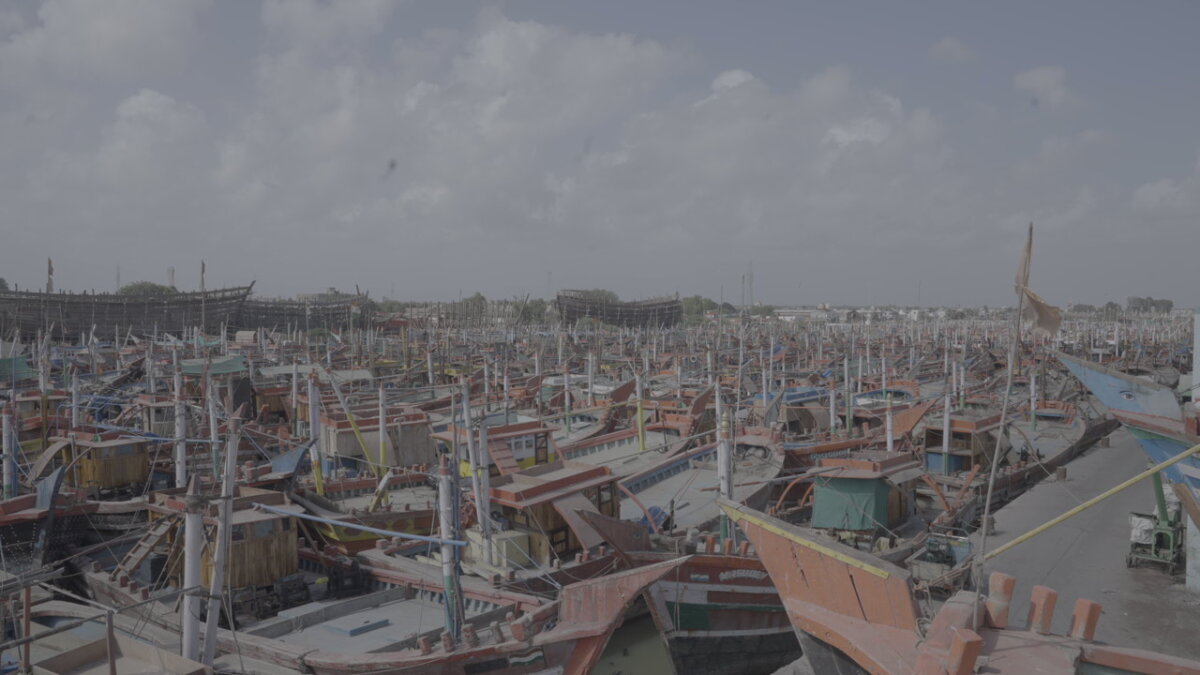
The 'Waiting Game' is a documentary that sheds light on the voices of women in India’s coastal Gujarat region, whose husbands, sons and brothers were picked up at sea and vanished into Pakistani prisons.
You can watch the full documentary here.
Damuben, a resident of Diu along the western coast of India, has been fighting a relentless battle for the release of her brother and brother-in-law, who were arrested by the Pakistani Maritime Security Agency (PMSA) while fishing in the Arabian Sea. It has been three years since they left one morning for their regular run at sea and never returned.
Now imprisoned in Karachi’s Malir Jail, the family rarely hears from them or gets updates on their well-being. Occasionally, a letter is smuggled out by a repatriated prisoner, or a sympathetic prison guard might allow them to send a message using their phone.
But ever since the military conflict between India and Pakistan, marked by cross-border missile strikes, suspended treaties, and a total breakdown in diplomatic ties, families like Damuben’s have been left in the dark, with no news at all about their loved ones.
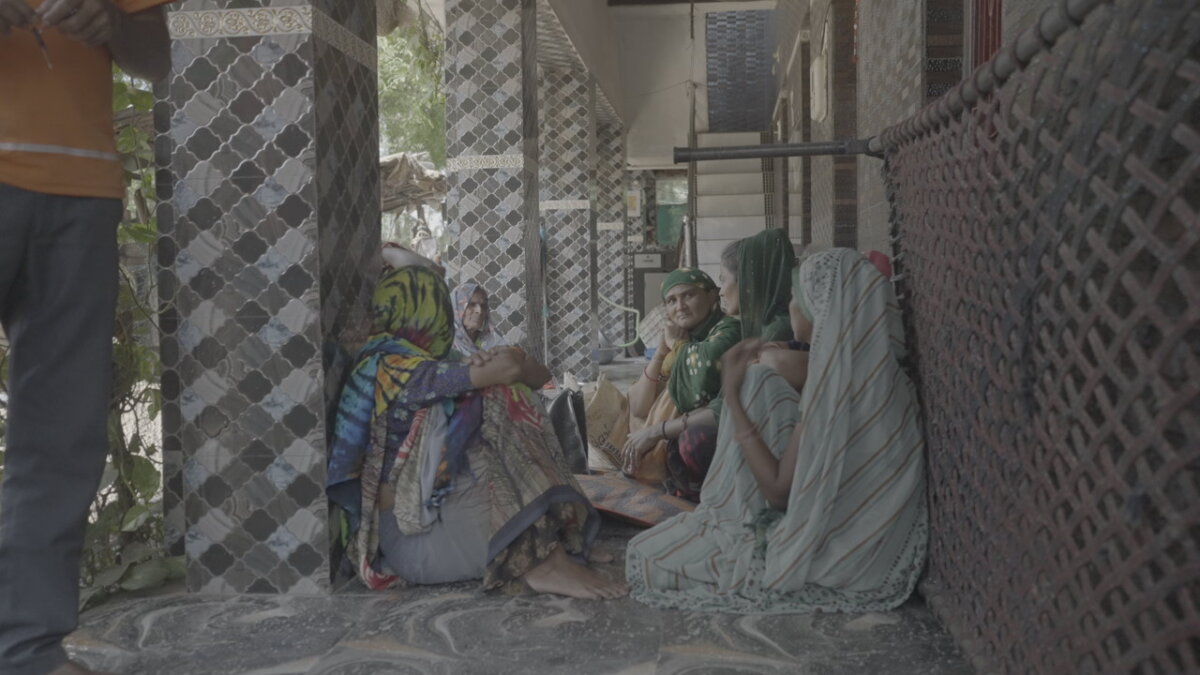
Diu, India, women gather to share their travails as their male family members serve time at Karachi’s Malir prison.
"My brother-in-law has been there for the last four years. We don’t know anything about him... not where he is or how he’s doing," said 40-year-old Damuben anxiously over the phone. She is a home-maker, which is common among wives of fishermen in this male-dominated profession.
While India and Pakistan’s land border is heavily guarded, the boundary in the Arabian Sea, especially around Sir Creek, remains unclear. Sir Creek, a 96-km tidal estuary located between Gujarat and Sindh, is a disputed area where both countries have been unable to reach a consensus on the maritime boundary. Due to this ongoing uncertainty, many fishermen are sent to jail every year, caught in the middle of these disputes.
This isn’t a new problem, as fishermen getting caught and jailed after accidentally crossing the obscure maritime boundary has been happening for years. Dozens are arrested every year, often spending months or even years in prison without trial or contact with their families. To address this, India and Pakistan signed a consular agreement in 2008, under which both countries exchange lists of arrested fishermen and civilian prisoners twice a year, on 1 January and 1 July, to monitor detainees and ensure timely consular access.
A similar list was shared two weeks ago, according to which Pakistan shared names of 53 civilian prisoners and 193 fishermen in its custody who are Indians or ‘believed-to-be-Indians,’ and India has shared names of 382 Pakistani or ‘believed-to-be-Pakistani’ civilian prisoners and 81 fishermen in its custody.
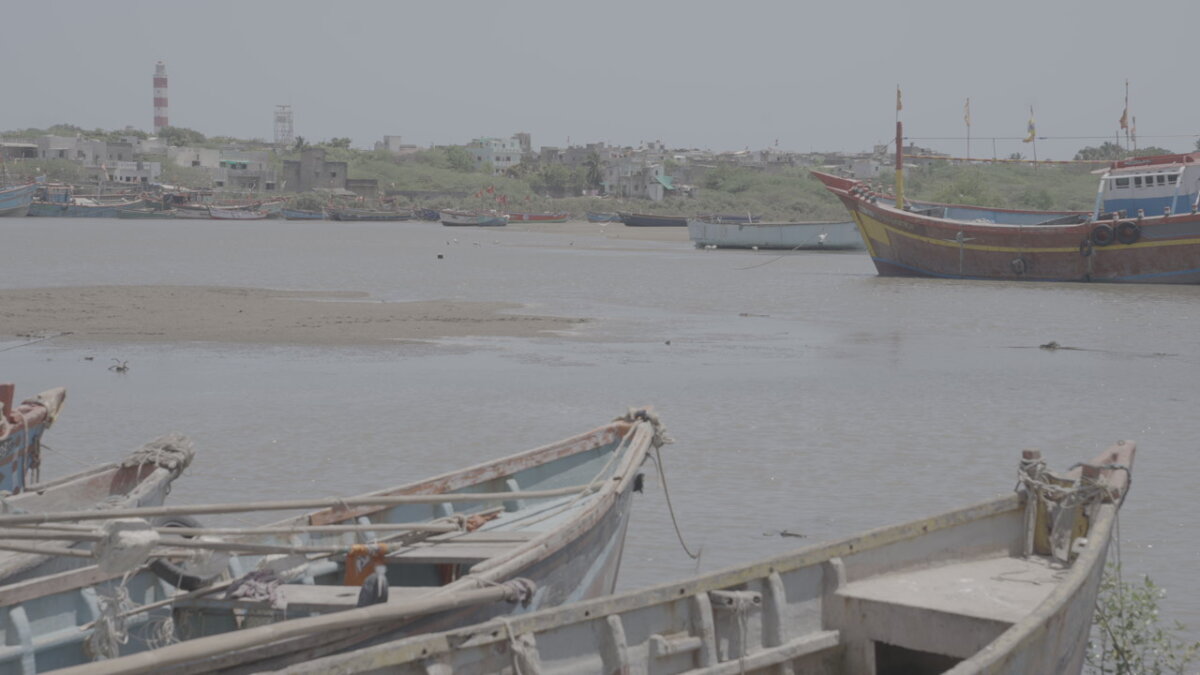
For years, fishermen have been getting caught and jailed after accidentally crossing the obscure maritime boundary between Gujarat and Sindh.
In a statement released on their website, the Ministry of External Affairs assured that "India remains committed to addressing, on priority, all humanitarian matters, including those pertaining to prisoners and fishermen in each other's country."
However, Damuben and many families like hers have made repeated appeals to the Ministry for updates on the well-being or any progress toward the release of their fishermen, but so far, they’ve received no response.
The brief but intense military conflict between India and Pakistan from 6 to 10 May 2025, triggered by the Pahalgam terror attack, has pushed the humanitarian crisis of these prisoners even deeper into the shadows.
As diplomatic ties between the two nuclear-armed neighbours continue to deteriorate, families - mostly from Gujarat and the neighbouring Union Territory of Diu - are growing increasingly uncertain about the fishermen's fate. With little hope elsewhere, many are now turning to social activists for help.

Jatin Desai, an independent activist and former journalist from Mumbai, Maharashtra.
Veljibhai Masani, an activist and member of the National Fisheries Development Board from Mangrol in Gujarat, says there’s a complete information blackout around the detained fishermen. Even their colleagues and fellow activists in Pakistan, he notes, have been unable to get any updates on their status or health.
"The family members are really stressed about their loved ones. Earlier, we used to be hopeful that they would release them on Eid or Diwali. But now, everything is closed. There is no communication at all," Masani told FairPlanet.
Jatin Desai, an independent activist and former journalist from Mumbai, Maharashtra, said he’s also been flooded with calls from concerned family members, and explains that it’s becoming increasingly difficult to strike a balance between offering reassurance and facing the reality on the ground.
"On one hand, you have to tell families not to lose hope. But at the same time, it’s clear that the release and repatriation of these fishermen is not an immediate priority for the government," he said.
The families are worried that, given the current situation, no one is paying attention to their concerns anymore and, consequently, have no idea how their relatives are being treated in jail. There’s a growing fear that the mood inside, among prison staff and even fellow inmates, might have shifted after the conflict, making it even harder for the fishermen inside, explained Desai.
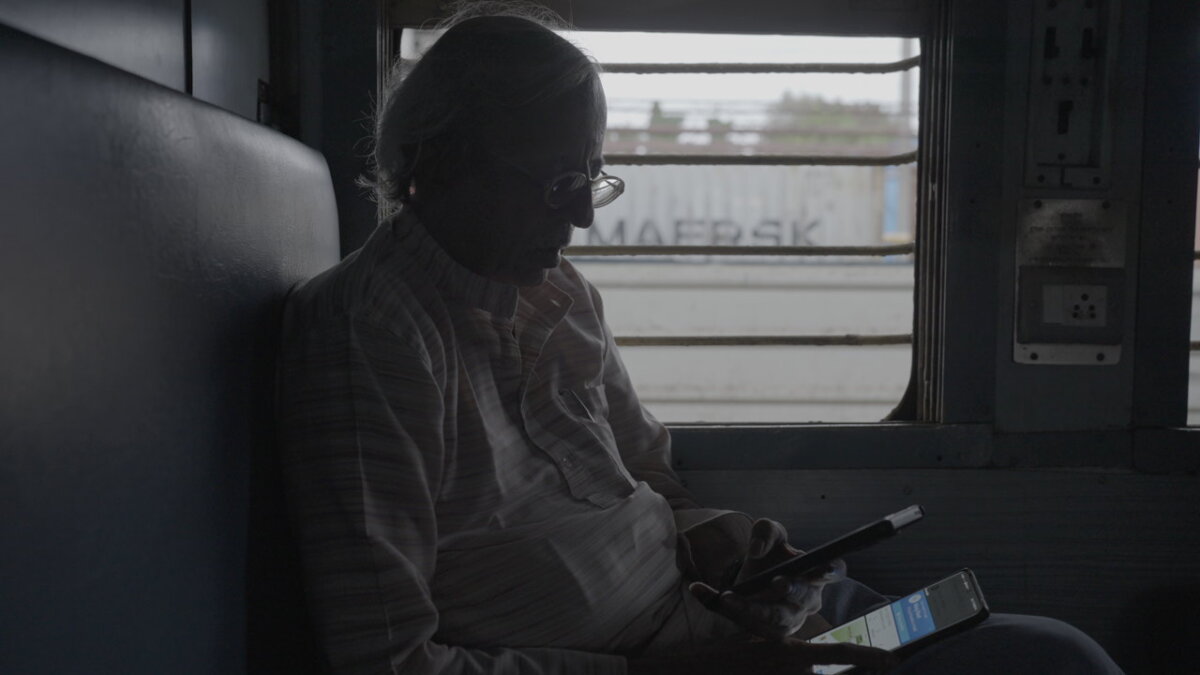
"....it’s clear that the release and repatriation of these fishermen is not an immediate priority for the government," says Jatin Desai
"Even in so-called peaceful times, getting them released isn’t easy. And now, it just feels that much harder. It’s a real challenge. Unless there’s more pressure, I don’t see things moving," he told FairPlanet.
Damuben, a resident of Diu, has been one of the most vocal voices for the fishermen in her village, maintaining close connections with nearly all the affected families. She’s been helping them navigate the chaos by setting up meetings with union leaders and activists, trying to keep the issue alive. Now, along with others led by Masani, she’s planning a trip to Delhi to take their case directly to the Ministry of External Affairs, hoping it might finally push the government to act.
"I bring the families together so we can put real pressure on the authorities to bring our people home," she said, speaking about the upcoming visit.
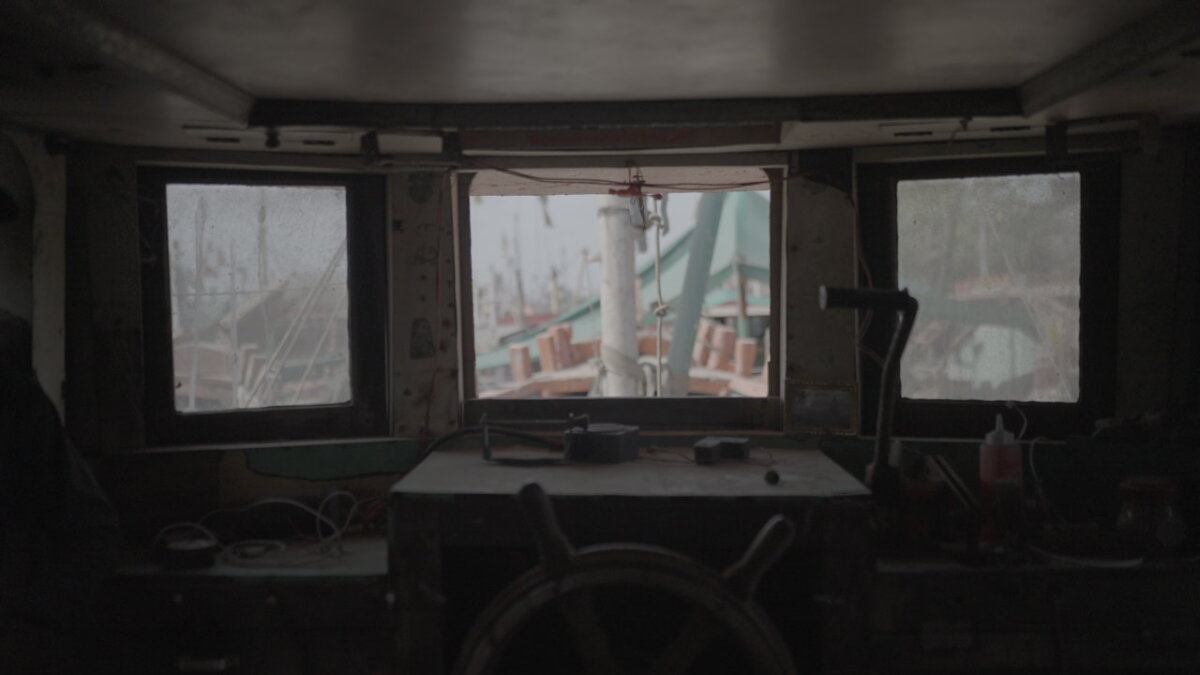
"These fishermen are innocent on both sides," says activist Veljibhai Masani
Activist Veljibhai Masani added that no one is being released at the moment, and that silence is concerning. He believes this needs to be addressed as a humanitarian issue at the highest level.
"Our Prime Minister should speak directly with the Pakistani Prime Minister. These fishermen are innocent on both sides. We should agree to release them. That’s what I want to put forward to the PM," Masani said.
"This is what we’re pushing for, to get permission to visit the prisons ourselves and understand what’s really happening with our people there. We want to give them some hope, let them know we’re trying. And we want to appeal to the Pakistani government too, to send them back home."
But while the families of these fishermen wait for their return, the loss of their sole breadwinners has pushed many into a cycle of mounting debt and constant, crippling anxiety, especially when they think about those who still continue to work as fishermen for a living.
"My sister’s husband was arrested in early 2022. Since then, she’s been juggling multiple jobs just to keep herself and her three young children afloat," said Damuben, who also worries constantly about her own husband, still out at sea working as a fisherman in the Arabian Sea.
"I’m scared for him every single day. But there’s no other work here. This is all we know, and all we can do. We’re helpless," she said.
Images by Kanika Gupta
By copying the embed code below, you agree to adhere to our republishing guidelines.